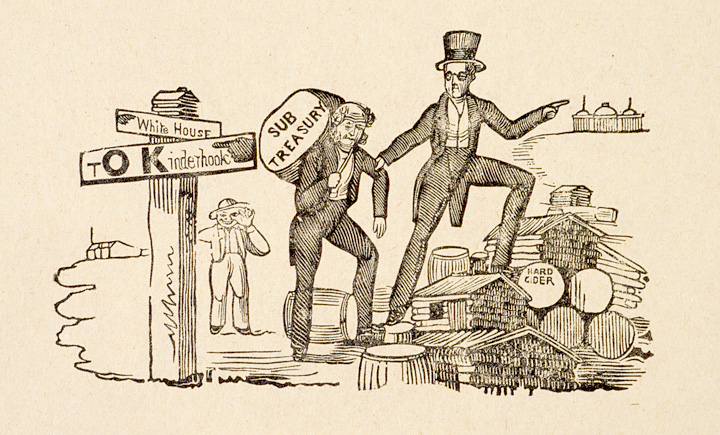Do you know what OK stands for? Its meanings and origins might surprise you. Let’s talk about language evolution.
Technology has changed language at such a blistering pace that it’s hard to keep up for those of us who are a little older. I was introduced to ‘text abbreviations’ like LOL and BRB (laugh out loud and be right back) when text messages started to take off in the late 90s and early 2000s. This shortening of phrases was all the rage.
Later, when smartphones hit the scene, a new form of shortened communication appeared: the emoticon, and after that, the emoji.
Long before that, though, abbreviations were being used not just as shorthand, but as ways to express humor. OK would start as part of a fad, but end up being one of the most used words in the world.

Who Invented the Word OK?
Journalist Charles Gordon Greene was responsible for the first confirmed use of the word OK in the March 23, 1839 issue of the Boston Morning Post.It was found in a humorous article about their rival paper, the Providence Journal.
There are a few theories about the origins of OK, and some of them make perfect sense.
One such theory is that OK stems from the Scottish phrase of agreement, “och aye”. After all, OK also conveys agreement or acquiescence, and both och aye and OK sound similar. Surely that’s the most sensical answer, right? Well, it might be sensical, but it’s wrong.
The next theory is that OK comes from the Choctaw word “okeh”, which translates to “it is so”. Again, both words sound phonetically similar, and they both convey similar ideas. This explanation also makes sense! But it’s still wrong.
When OK was used in the Boston Morning Post article, it was an abbreviation of “Oll Korrect”, or “Ole Kurreck”, a humorous misspelling of “All Correct”. This misspelling and subsequent abbreviation was quite popular, and readers of the time found it hilarious.
But why was spelling something wrong so funny?
The Boston Abbreviation Fad
Humor is relative, which is why things found comical in the 1800s wouldn’t earn even a LOL from someone today. The humor of that time might be lost on us, but it’s imperative to understand why OK entered the English language.
To those in Boston in 1838, misspellings were seen as a humorous way to make fun of the poor or less educated. A number of phrases would be misspelled on purpose in newspapers and other forms of written media just to get a laugh, and the most infamous of these misspellings is undoubtedly OK.
Boston didn’t just love wrongly spelled words, they also adored abbreviations. We aren’t sure where the misspelling “Oll Korrect” was first used, but it stuck around long enough to be abbreviated into OK, and OK certainly had staying power.
For a time, OK was a Boston phenomenon, but it wouldn’t be long until it reached the rest of the country.
Martin Van Buren: “Old Kinderhook” or “OK”
The use of OK hadn’t spread much beyond Boston by 1840, but that was about to change.
It was an election year, and a man named Martin Van Buren was the Democratic presidential candidate. When running for office, every little detail needs to be taken into consideration–even someone’s name!
Literacy was not high in the United States at the time, and some democrats were worried that “Martin Van Buren” might be too much of a mouthful for voters, and too hard to remember. What Van Buren did have, though, was a prestigious nickname based on where he grew up.
Martin Van Buren hailed from Kinderhook, New York, and this combined with his age gained him the nickname “Old Kinderhook”. It was quickly decided that Old Kinderhook would be a better name for a campaign than Martin Van Buren–after all, people were more likely to recognize city names even if they couldn’t read well, and Old Kinderhook had a distinct patriotic air to it.
So in response to this nickname, democrats began pushing Van Buren’s new moniker. Signs would read “Vote for Old Kinderhook”, eventually morphing into the shortened “Vote for OK”.
Even in 1840, Presidential campaigns were a huge deal, and the Vote for OK slogan spread far and wide. The opposing side even tried to use it to criticize Van Buren’s predecessor, Andrew Jackson, who had difficulty spelling during his presidency and had used the abbreviation. If you recall from earlier in the article, making fun of someone for misspellings is a way to insinuate that they are illiterate.
From there, OK entered people’s vernaculars across the county, but the abbreviation wasn’t done yet–OK was going to travel the globe.
OK Goes International
Fads from the United States have a tendency to make their way overseas once they become popular enough, and OK was no exception.
With more and more people implementing OK into their daily speech or writing, uses of OK started to pop up in other countries.
A few of the languages that adopted the early usage of OK were:
- Arabic
- Mandarin Chinese
- German
- Dutch
- Korean
- Japanese
Not only did understanding OK make it easier to communicate trades, but it was absorbed into a few of these languages themselves. A word that is assimilated from one language to another is known as a loanword, and OK might be one of the prevalent loanwords in existence.
OK transfers over to other languages so well for several reasons. It’s a short and simple word that conveys a large number of meanings, and the sounds are easy to replicate for foreign language speakers.
The increased usage of the telegraph also helped spread OK to the masses. Agreeing or affirming something with two letters was much easier than tapping out an entire phrase.
OK was added to most dictionaries by the 19th century, making the former joke into an official word.

